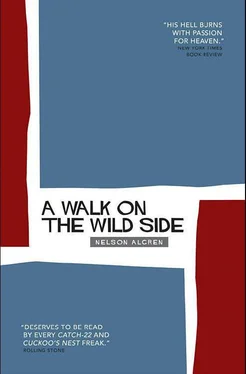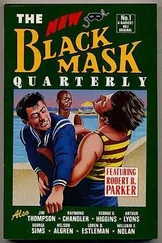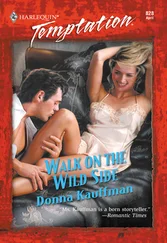His hand had fastened so hard onto the bills he had to rub his palms to get the circulation going again. Then he stuffed them into the pocket of his jeans. This was no time for counting, what he needed was a railroad track.
If Dove had one sure instinct it was, like the rabbit’s, for keeping out of sight till you reach the end of town. He turned this way and that, till a signal tower’s red and green stars led him at last to a railroad embankment.
‘Which way to the S.P., Mister?’ he called down to a lantern swinging in the dark.
The light swung up. ‘You’re walkin’ the S.P. now,’ the lantern assured him – ‘keep off all trains not in motion.’
Dove put his back up against a telephone pole and waggled his loose tooth a while, but it wouldn’t come loose all the way. And as he waggled it seemed to him the pole he was braced against was in the middle of the track. A headlight came bearing down at ninety an hour but no hurry, it had been coming on for days. He slept on.
The clackety-banging roar of boxcars a dozen yards away woke him at last. Far down the line a little red caboose joggled and swayed like a caboose on a toy railroad.
Dove put his hand on his bankroll to make sure it didn’t jump out, and clambered into a rocking gloom.
‘Anybody here?’
No word but a creaking floor.
‘Good deal, Linkhorn,’ he congratulated himself. ‘Got yourself a private car and by God you’ve earned one.’ He closed the door and turned on his side. Sometimes crooks rode these trains.
The day and the night that followed always remained a hazed kind of memory to Dove. All he recalled clearly was opening the door the next morning and seeing a veil of mist so blue it blurred the outlines of house, hill and tree. And as the morning warmed the whole big blue world began to smoke faintly.
Louisiana.
In the long afternoon the clouds stacked. And still, over it all, that pale shifting veil.
A real southland haze in which one sees whatever one wishes to see. A haze that seeps behind the eyes and makes a wish-dream of everything.
‘I figure I’ll learn me to play the gee-tar,’ he dreamed against the boxcar door, ‘I’ll just go around playin’ a gee-tar – that’s what brings the purty girls around.’
Louisiana.
He saw a taller Dove in shining pants, astride a stallion white as snow, playing a guitar with one hand and holding the stallion back with the other, singing and prancing into New Orleans.
Louisiana.
His fingers wandered over unseen strings
Bold brave and undaunted stood
young Brennan on the moor—
Dove reined in a bit to let the people see him better.
Wishes and hopes in a blue-smoke dream as the big car rolled and his head lolled lightly. Nothing but peace and pretty weather. Dove dreamed that whole blue-smoke day away till the milking-stars came out.
Later, while lying prostrate on the top of the car, and the train was taking water in the wilderness, he thought himself unseen while flashlights and lanterns inspected couplings and wheels. But just as the train pulled out, someone called up laughingly, ‘Keep stretched or get down inside, son.’
So he stayed prostrate smack into a roaring blackness with a tunnel-roof scraping his back. Coal fumes piled down on him. He got his bandanna over his mouth and nose and hooked one arm under the wooden spine. All that kept him from fainting was the hope that no tunnel can last forever.
This one nearly did. When air hit him again his senses were reeling. He spat coal dust half across that fool state.
Dove had a railroad bull to thank for his life, and other bulls less to thank for. They wouldn’t come into the cars by day, when they were crowded, but hurried discreetly past as if the cars were empty. But at night they’d get four or five ’boes off by themselves and really go to work on them.
One noon an armed nab stuck his nose in a boxcar door – ‘Come on out of there one by one!’
Nobody moved. Each knew that the first to go out would get bloodied, while those who followed might get by unscratched.
‘I said “Come out” by God!’
Nobody moved.
‘By God you don’t come out, we come in.’
Their silence dared him.
‘You know,’ he turned with feigned boredom to someone behind him, ‘I’m so tired of kickin’ asses I just think I’ll start crushing skulls.’
The second he said that somebody leaped to be the first – the deputies mobbed him while the others scattered free. Three bulls with gun butts to one unarmed stray was the common yardstick of the railroad bull’s courage. No man with the nerve to go after another with only a gun against bare fists could become a railroad bull: you had to have at least two other guns on your side to measure up to a vocation wherein ferocity betrayed innate cowardice.
Sometimes the bulls took everyone off a train, marched them downtown, fingerprinted and photographed the lot, then released them with the warning, ‘Now we got a record on you. If you try riding through here again you go to the pea-farm.’ Thus the homeless were blocked out of town after town, until almost any town you could name had issued fair warning to anyone what would happen to him if he tried it again.
Another afternoon Dove jungled up with four others beside a creek. Those who had used this patch of jungle before had left a sign asking those who came after to leave it as clean as they’d found it. Moreover, someone had left a pair of almost new shoes for Dove to find. They fitted as though made for him.
A couple of the boys got a mulligan going. Dove lay naked in the creek smoking a cigarette and smelling the mulligan. It was his first peaceful moment since leaving Arroyo.
He didn’t see the officers until he heard the shots. One put six holes into the mulligan pot – it steamed into the fire while the strays fled. Dove’s head peeked out of the water like a sitting duck’s. He came out dripping and sheepish.
The game then was to see how fast a bum could get dressed while getting smashed in the head with billys from both sides. He got one for his shirt, two for his pants, and would have gotten by with no more than that if he’d had the sense to run for it. But in the midst of blows he had to sit down and try to pull on his shoes – that got him so many that he ran without them at last.
When he hopped off the yards in Algiers across the river from New Orleans his head was still aching.
He got the topmost layer of blood and soot off his face at somebody’s pump. Offering a nickel to the tolltaker at the ferry, the man jerked his thumb in a come-ahead-son gesture – ‘The lady paid for you.’
Dove saw a middle-aged woman who had walked onto the ferry ahead of him. He walked up beside her, nickel still in hand.
‘I’ll pay my own way, thank you kindly all the same, m’am,’ he told her, and dropped the nickel in her palm. She turned beet-red but Dove felt better.
When the boat pulled into the pier and a deckhand hurled a coil of rope to fasten the boat to the dock, Dove rushed up and helped him tie it. But all he got for his trouble was an irritated, ‘I’ll handle this, son.’
That was how Dove came at last to the town that always seems to be rocking. Rocked by its rivers, then by its trains, between boat bell and train bell go its see-saw hours.
The town of the poor-boy sandwich and chicory coffee, where garlic hangs on strings and truckers sleep in their trucks. Where mailmen wore pith helmets and the people burned red candles all night in long old-fashioned lamps.
The town where the Negro women sang,
Daddy I don’t want your money
I just want your stingaree
And piano-men at beat-out pianos grieved—
Читать дальше












